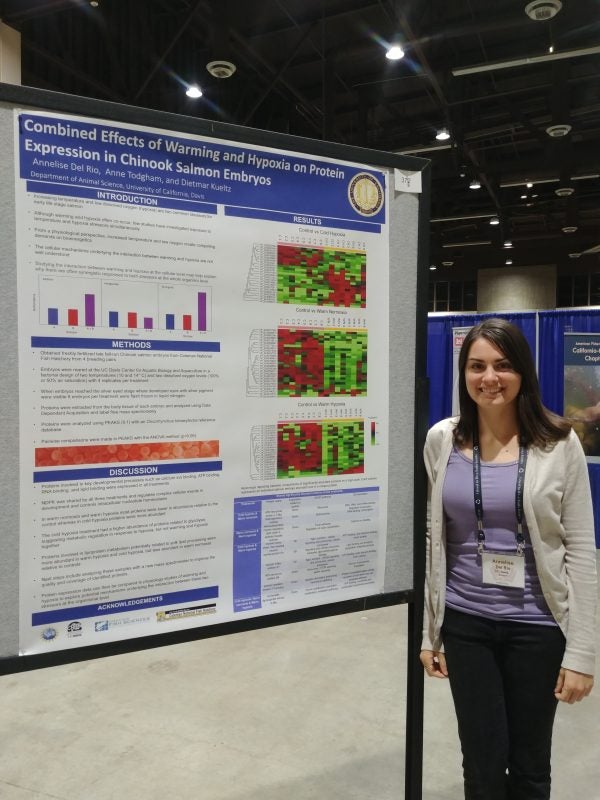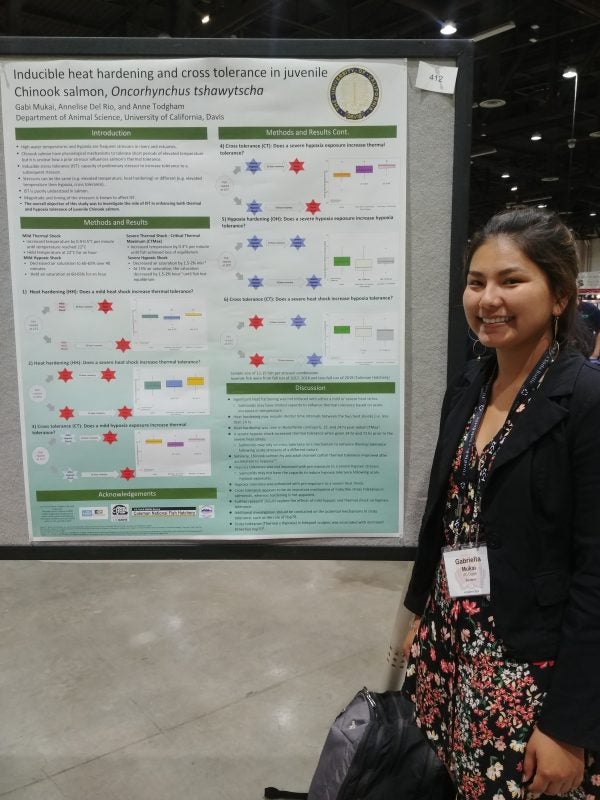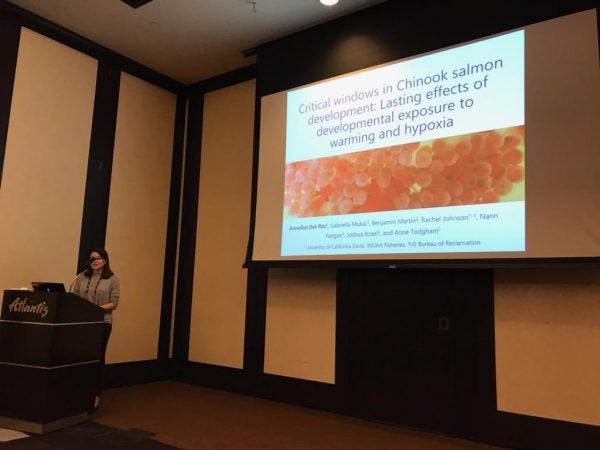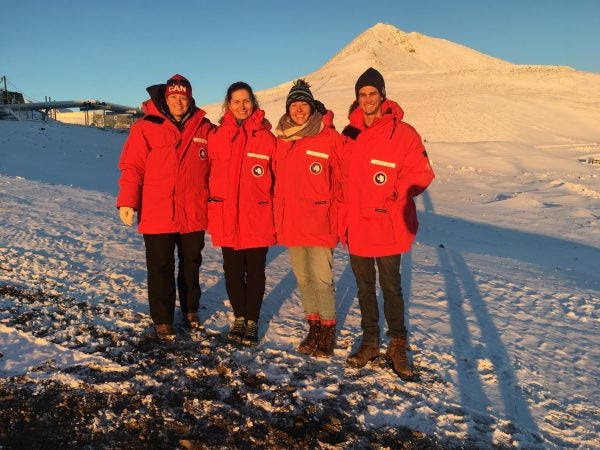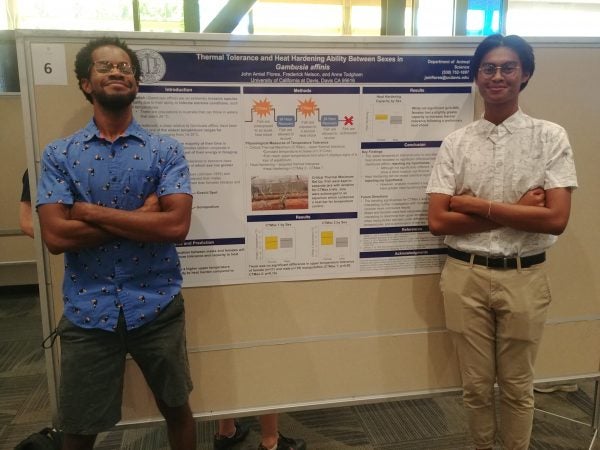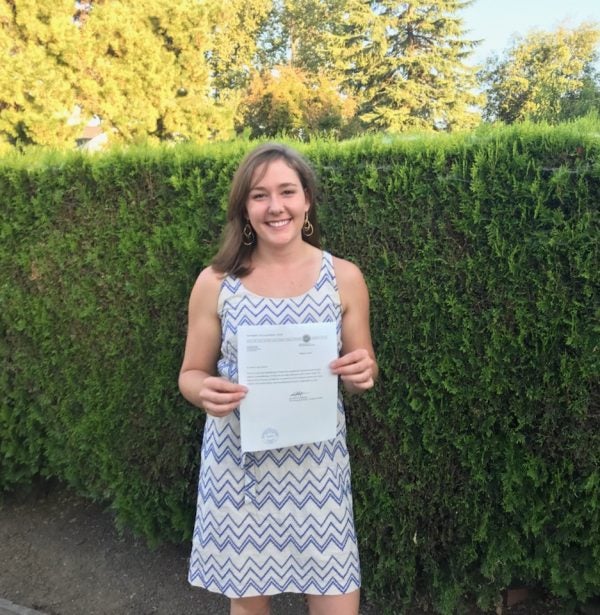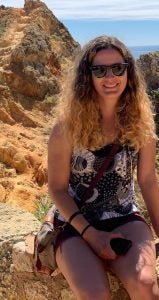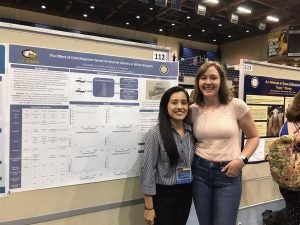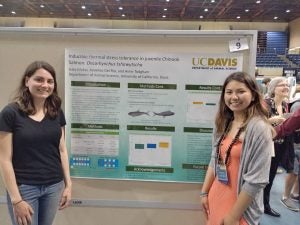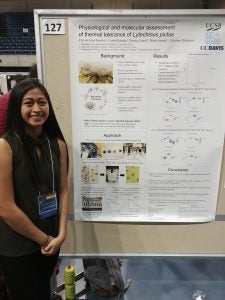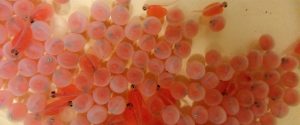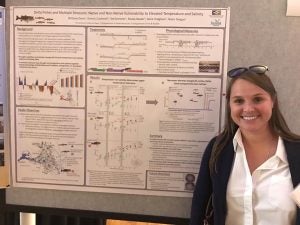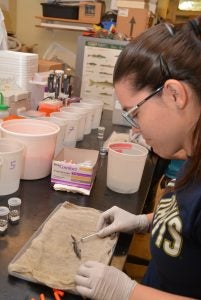Todgham lab members shared our research with the public at two annual events this spring. The Picnic Day sturgeon touch tank is always a hit as guests get to interact with white sturgeon and learn about the past and current sturgeon research conducted by the UC Davis Animal Science Department and our lab.
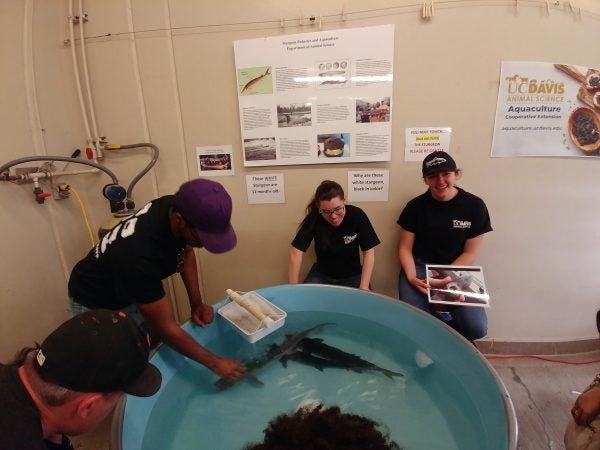
Fred, Michaiah, and Mandy running the touch tank and answering questions about all things sturgeon.
We also volunteered at the Marguerite Montgomery Elementary School’s Science Expo day where we shared our salmon conservation research. The students enjoyed the tank of live salmon, the survival game, and seeing early fish development through displays of preserved specimens.
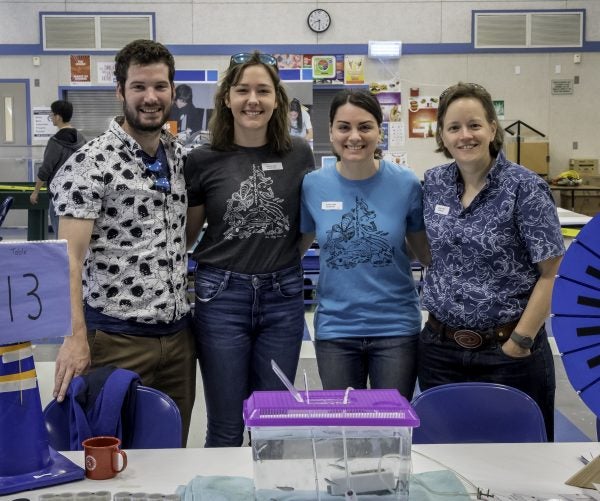
Ken Zillig, Mandy Frazier, Annelise Del Rio, and Anne Todgham at the Science Expo (Photo courtesy of Bruce Draper)
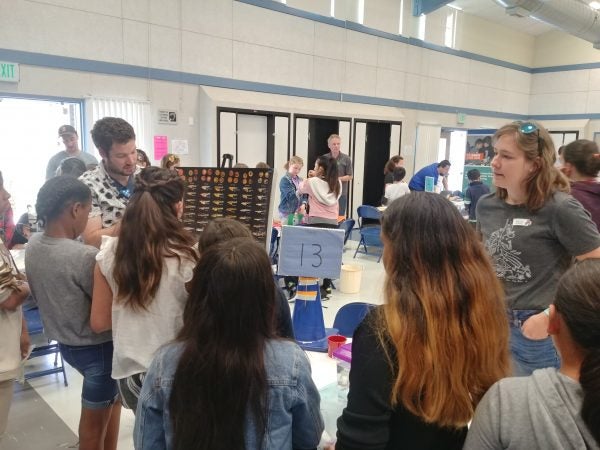
Ken and Mandy teaching students all about early life stage salmon
